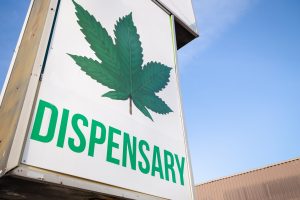 What is the application process for permission to open a cannabis store?
What is the application process for permission to open a cannabis store?
There are two parts to the application process – one part to satisfy the requirements of the Town of Gibsons and one part to satisfy the requirements of the Province of BC. (See Part A & Part B below for more details). These application processes may be conducted concurrently.
Part A) Apply to the Town of Gibsons for site-specific rezoning, and then for a business licence.
In order to obtain a Town of Gibsons business licence, cannabis retailers must first apply to the Town to rezone their business site. See criteria as detailed in Cannabis Policy 3.17.
To apply for site-specific rezoning, submit application form + fee ($1,000 + $100 per 300 m2 of land, up to a maximum of $10,000). The Town will gather views of local residents by issuing a Notice of Application to property owners situated within a 50-metre radius of the business, and also by publishing a Notice of Application in the local newspaper. Additionally, a rezoning application will be given a Public Hearing and four readings by council. Based on feedback from the public and other factors, Town staff will recommend that Council approve or deny the rezoning application.
Once a cannabis retail applicant has successfully obtained site-specific rezoning, a Town of Gibsons business licence will be issued. A business licence for retail use costs $160 for a retail space of up to 1000 ft2 and an additional $8 for each additional 100 ft2.
Part B) Apply to the Province of BC for non-medicinal cannabis retail licence.
This is a 4-stage process:
i. Applicants submit licence application + fee to LCRB. (The Province collects a $7,500 application fee for a cannabis retail store and an annual license fee of $1,500. Additionally, a referral from the LCRB costs $1,000.)
ii. LCRB notifies local government that an application has been received.
iii. Local government may then:
a. Choose not to make any recommendation, which would effectively end the licence application, or
b. Choose to make comments, either denying or recommending the application.
As part of the local government process to review LCRB referrals, the Town will gather views of residents by issuing a Notice of Application to property owners situated within a 100-meter radius of the business, and also by publishing a Notice of Application in two consecutive issues of a local newspaper.
iv. Licence is issued or denied by the LCRB.
If the local government chooses not to make any recommendation, or makes a recommendation to deny the application, the LCRB may not issue the licence. If the local government recommends the application, then the LCRB must consider the recommendation, but has discretion over whether or not to issue the licence.
Do residents have a chance to comment during the retailer licensing process?
Yes. If the Town decides to consider an application for a cannabis store, it must gather the views of residents of the proposed retail area by using one or more of the following methods:
- Receiving written comment in response to public notice of the application;
- Conducting a public hearing in respect of the application;
- Holding a referendum; or
- Using another method the Town considers appropriate.

